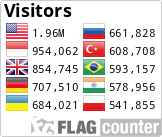The Impact of E-Government Services, Citizen Participation, and Transparency on Public Trust in Government
DOI:
https://doi.org/10.59613/global.v2i6.200Abstract
This study examines the impact of e-government services, citizen participation, and transparency on public trust in government. The objective is to explore how digitalization in public services, along with enhanced citizen engagement and increased transparency, can influence the level of trust citizens place in their governmental institutions. Using a qualitative research approach, this study draws on existing literature and case studies to analyze these interrelated factors. Data collection involved a comprehensive review of scholarly articles, government reports, and case studies that provide insights into how e-government initiatives, participatory mechanisms, and transparency measures have been implemented and their subsequent effects on public trust. The analysis reveals that e-government services significantly contribute to the efficiency and accessibility of public services, thereby fostering trust among citizens. Additionally, active citizen participation in decision-making processes and transparent governance practices enhance the perceived accountability and integrity of the government, which further boosts public confidence. The findings suggest that a holistic approach combining e-government, citizen engagement, and transparency is crucial for building and maintaining trust in government institutions. This research provides a nuanced understanding of the dynamics between digital governance, civic involvement, and trust, and underscores the need for policymakers to integrate these elements into their governance strategies to improve public trust.
Downloads
Published
How to Cite
Issue
Section
License
Copyright (c) 2024 Salamatul Afiyah

This work is licensed under a Creative Commons Attribution 4.0 International License.













